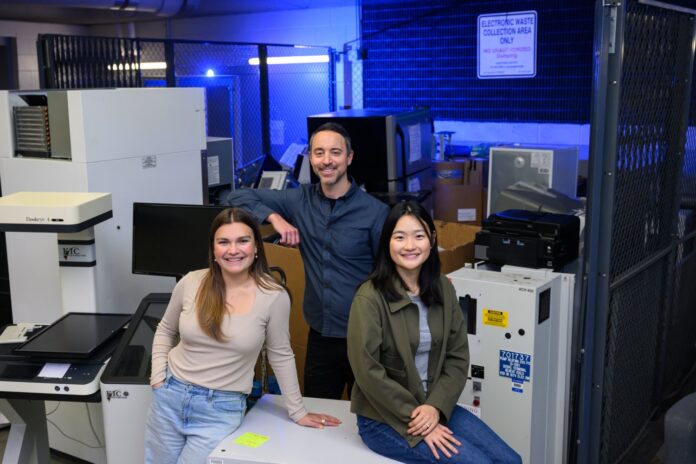The Environmental and Climate Justice Implications of the Electronics Hardware Life Cycle
Brought Together to Examine Urgent Problems
A community of students known as SERC Scholars was brought together as part of the Social and Ethical Responsibilities of Computing (SERC) initiative within the MIT Schwarzman College of Computing. The initiative aims to examine the most urgent problems humans face in the digital landscape.
From Mining to E-Waste
A group of undergraduate and graduate students recently had the unique opportunity to enhance their resume by becoming published authors of a case study about the environmental and climate justice implications of the electronics hardware life cycle. This case study, "From Mining to E-waste: The Environmental and Climate Justice Implications of the Electronics Hardware Life Cycle," was published by the MIT Case Studies in Social and Ethical Responsibilities of Computing.
An Insanely Interdisciplinary Team
The team was comprised of students from diverse backgrounds, including computer science, urban planning, art, culture, and technology. Anastasia Dunca, a junior studying computer science, mentioned that the team’s diversity was a significant asset. "Our team was insanely interdisciplinary. I joined the SERC Scholars Program because I liked the idea of being part of a cohort from across MIT working on a project that utilized all of our skillsets."
Learning About the Intersection of Technology, Society, and Ethics
Jasmin Liu, an MBA student in the MIT Sloan School of Management, emphasized the importance of a diverse team. "I was excited to work with a diverse team because I know complex problems must be approached with many different perspectives. Combining my background in humanities and business with the expertise of others allowed us to be more innovative and comprehensive."
Breaking Down the Electronics Life Cycle
The case study broke down the electronics life cycle from mining to manufacturing, usage, and disposal. It offered an in-depth look at how this cycle promotes inequity in the Global South. The study found that mining for the average of 60 minerals that power everyday devices leads to illegal deforestation, compromising air quality in the Amazon, and triggering armed conflict in Congo.
Proposed Solutions and Future Discussion
The case study proposed life cycle assessment and circular economy as mechanisms for analyzing environmental and climate justice issues in the electronics life cycle. Rather than posing solutions, the case study offered readers entry points for further discussion and for assessing their own individual responsibility as producers of e-waste.
Conclusion
The SERC Scholars’ case study highlights the importance of interdisciplinary collaboration and the need for a comprehensive approach to addressing environmental and climate justice issues in the electronics hardware life cycle. As the world becomes increasingly dependent on technology, it is essential to consider the long-term consequences of our actions and to work towards a more sustainable future.

